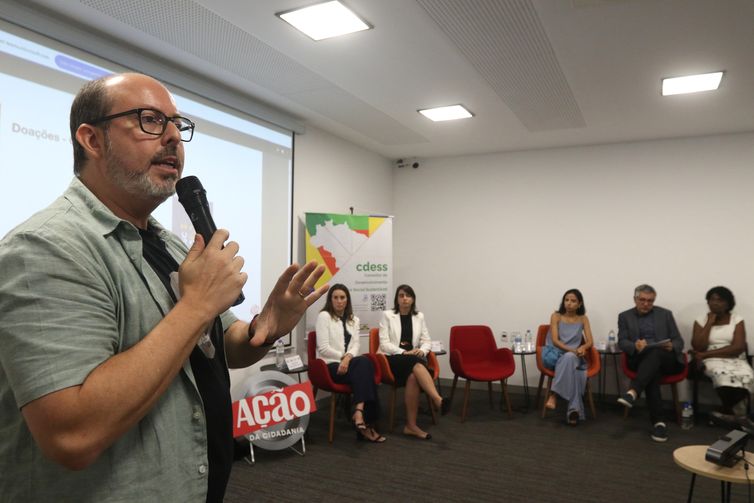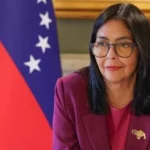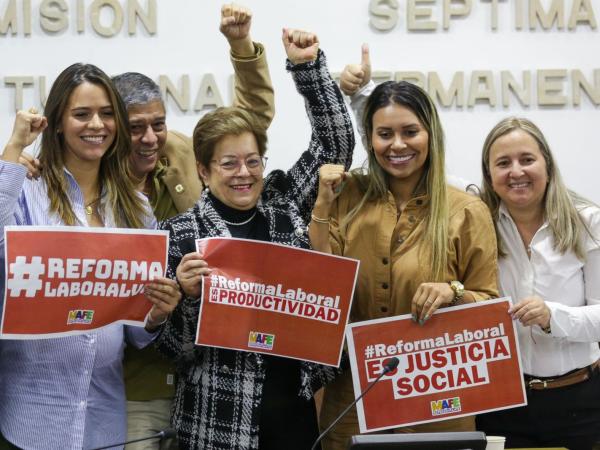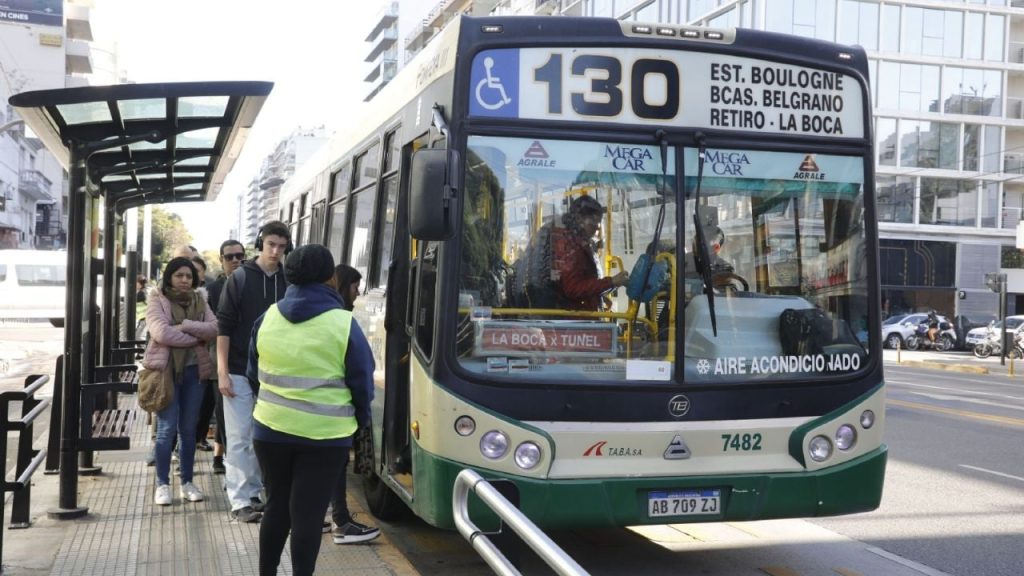Retired Leonor Pires Faria, 67, takes care of her three granddaughters, aged between 9 and 13. Living in a favela in the metropolitan region of Rio de Janeiro and earning a minimum wage, she finds it difficult to provide for her family. And this includes one of the most basic needs of any human being: food.
“It’s very difficult. There are days when it’s okay, but there are days when it’s very difficult. If my granddaughters were entitled to Bolsa Família, it would help a lot. I went to Cras [Centro de Referência da Assistência Social do município] to see [se elas teriam direito ao benefício] and it turned out that I was retired and they weren’t entitled to it because they lived with me. One pension is enough for four people”, laments Leonor.
Without enough money to provide adequate food for herself and her three granddaughters, she has to seek help from a non-governmental organization that distributes food. “The municipality should help those in need, by surveying who needs it and who doesn’t,” adds the retiree.
In Brazil, there are 21.6 million households, spread across 5,570 Brazilian municipalities, that faced some degree of food insecurity in 2023, according to the Brazilian Institute of Geography and Statistics (IBGE). In the case of 7.4 million of these households, people lived with a moderate or severe level of insecurity, which consists of a reduction in the amount of food consumed or a disruption in their eating patterns.
This is one of the problems that many mayors and councilors elected this year will have to face during their terms, which will begin on January 1, 2025.
Eduardo Lúcio dos Santos is the founder of Projeto União Solidária, one of several non-governmental organizations (NGOs) that serve people in situations of food insecurity in the country. “I believe that the city could have public policies aimed at combating hunger. We could have meetings and gatherings for projects and NGOs to present their ideas. We, who are a simple project, have managed to bring help to so many people. Certainly, with the city, with the public sector and, above all, with the will to do something, we would have a more humane city, less violence and without people going hungry,” he says.
Your hope is that futures mayors and councilors have a more human perspective on the less fortunate. “They must have empathy and truly want to solve the problems of the less fortunate, not only in terms of hunger, but also in basic issues such as health, education, sports and leisure. I hope that politicians do not only appear now because it is an election period, but that they stay and fulfill their campaign promises,” says Santos.
Founded by sociologist Herbert de Souza, also known as Betinho, Ação da Cidadania is one of the best-known non-governmental organizations in the country that works to combat hunger. According to the NGO’s executive director, Kiko Afonso, the city is one of the entities most involved in the fight against hunger.
Municipalities are responsible, for example, for registering Bolsa Família beneficiaries. “The CRAS, which are managed by city governments, are the gateway for any citizen to public programs, such as Bolsa Família and the Continuous Benefit Provision [BPC]. The big problem is that we have seen a good part of the city governments devalue the CRAS. You go to a CRAS and it has no staff, no equipment, no infrastructure to meet the demand that comes to it”, explains Afonso.
He also states that city governments should not only assist people who seek out the CRAS, but also actively search their citizens to include in the federal government’s Single Registry (CadÚnico) those people who are not yet covered by social programs, such as many who live on the streets.
Another important policy in the fight against food insecurity, especially among children and young people, is school meals. The National School Meals Program (Pnae) is financed by federal funds, but it is the city governments that use these resources and provide meals in early childhood and elementary schools.
“The city government needs to adapt to the entire program so that it can offer healthy food to the population. Unfortunately, this is not what we see. In many cases, there are public schools offering pasta with sausage and crackers,” Afonso points out.
According to Juliana Lignani, assistant professor at the State University of Rio de Janeiro (Uerj), the role of municipalities in combating hunger is strategic, because they are the federation unit that is closest to citizens.
“The municipality can understand who its population is, the main determinants of food insecurity and act in a more direct and specific way to the local problem, which can vary from one municipality to another”.
Juliana explains that income is an important determinant in the issue of food insecurity, but not the only one. “There are other situations such as access to employment, education, food production, food supply. And each municipality has its own specificities. Perhaps an important policy would be to rethink food production. What type of food is being produced? What support is being given to food producers?”
According to the researcher, municipal food security councils are important instruments for municipalities to understand their specificities and adopt policies to combat hunger in their territories.
“The council is a super important body, because it can have this notion and this mapping of the food insecurity condition within each location”, says Juliana, highlighting that it is also important for mayors and councilors to articulate food insecurity with other systems, such as Social Assistance and the Unified Health System (SUS).
“Councilors and mayors “They will play a very important role, since they are the legislators and executors of these actions, programs and policies. It is possible that they will be able to determine, direct and structure policies that dialogue with local needs and that make sense, so that they have a very effective result”, says Juliana.
According to Kiko Afonso, councilors are responsible for approving the creation of Food Security councils and ensuring the allocation of resources to them, in addition to approving specific legislation to combat hunger.
“And the role of the city government in the entire chain of action to combat hunger is absolutely essential. Without the city government, many of the programs do not reach the end, regardless of the resources and political will of the federal or state governments,” concludes Afonso.
*Intern at Brazil Agencyunder the supervision of reporter Vitor Abdala.


















